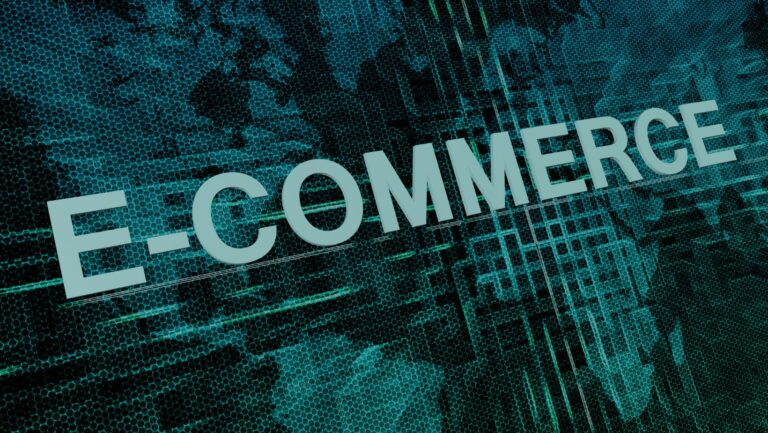How Emerging Technologies Are Reshaping Business Models Across Every Industry

Emerging technologies have always had a profound impact on business. From the steam engine to the internet, each innovation has changed not just how companies operate but how they generate value. Today, a new wave of digital transformation is underway—fueled by AI, blockchain, IoT, 5G, and other advanced technologies. These innovations are not just enhancing business efficiency; they are completely redefining business models across nearly every sector.
The Evolution of Business Models in the Digital Age
Traditional business models—product-based, service-based, or subscription-based—have begun to evolve rapidly in the digital age. The introduction of smart technologies has allowed businesses to rethink their value chains, revenue streams, customer engagement strategies, and operational infrastructure.
At the heart of this transformation is data. Companies that previously relied on physical assets are now focusing on data as a core value driver. Digital-native firms like Amazon, Google, and Netflix have already set a precedent, but now, even traditional industries like manufacturing, retail, and healthcare are undergoing significant change.
Artificial Intelligence: The Game Changer Across Sectors
AI is arguably the most disruptive technology in modern history. It is not just automating tasks—it’s enabling predictive insights, personalized services, and self-learning systems that adapt over time.
In healthcare, AI is transforming diagnostic models. Machine learning algorithms are being used to detect diseases earlier and more accurately. In retail, dynamic pricing models powered by AI help adjust prices in real-time based on market demand, competitor pricing, and user behavior. Meanwhile, in finance, robo-advisors and fraud detection algorithms are enabling new, efficient customer service models and secure transaction environments.
Even in creative sectors, AI has found its footing. The rise of tools like an AI video generator app is reshaping how marketing teams create, scale, and distribute content. Businesses are now able to generate high-quality promotional videos with minimal human input, drastically reducing production costs while increasing speed to market.
Blockchain and Decentralization
Blockchain technology is transforming trust and transparency in industries ranging from supply chain to finance.

By creating immutable ledgers and enabling decentralized transactions, blockchain offers a foundation for new business models that prioritize security and traceability.
In supply chain management, for instance, blockchain ensures end-to-end visibility, helping organizations track the origin and journey of products. This is crucial for industries like food, pharmaceuticals, and luxury goods, where authenticity and quality assurance are essential.
Financial services have also embraced blockchain through decentralized finance (DeFi). These platforms offer peer-to-peer financial instruments without traditional intermediaries, disrupting banks and other financial institutions.
Internet of Things (IoT): Smarter Products and Services
IoT is connecting the physical and digital worlds, enabling businesses to collect real-time data from sensors and devices embedded in physical objects. This data allows for proactive maintenance, real-time inventory management, and smarter product design.
In manufacturing, smart factories use IoT to optimize production lines and reduce downtime. In the consumer space, connected home devices have paved the way for subscription-based models, where users pay for ongoing services rather than a one-time product.
Automotive companies are also adopting IoT. Cars are increasingly being sold not just as vehicles but as mobile data platforms—creating opportunities for software updates, personalized services, and usage-based insurance.
Cloud and Edge Computing: Scalability and Agility
Scalability is crucial in today’s fast-paced market. Cloud computing enables businesses to deploy applications and services rapidly without investing in physical infrastructure. This democratizes access to powerful tools for small and medium-sized enterprises (SMEs) and startups.
Edge computing, which processes data closer to where it’s generated, complements the cloud by reducing latency and improving real-time decision-making. This is vital for industries like logistics and healthcare, where timing can directly impact service quality and outcomes.
The combination of cloud and edge is giving rise to “as-a-service” business models—everything from Software-as-a-Service (SaaS) to Infrastructure-as-a-Service (IaaS). These models offer predictable revenue and recurring customer engagement.
Augmented and Virtual Reality in Consumer and Enterprise Use
Augmented Reality (AR) and Virtual Reality (VR) are creating immersive experiences that enhance customer engagement and employee training. In retail, AR allows customers to “try on” products virtually before purchasing. In real estate, VR enables virtual tours of properties without a physical visit.

Enterprise applications include training simulations for industries like aviation, defense, and healthcare. This not only improves learning outcomes but also reduces the risk and cost associated with hands-on training.
AR/VR is also being integrated into customer support solutions, enabling technicians to guide users through troubleshooting steps in real-time using visual overlays.
The Gig and Creator Economy: A New Value Chain
Another transformation driven by technology is the rise of the gig and creator economies. Platforms like Uber, Fiverr, and YouTube have enabled individuals to monetize their time, skills, and creativity outside traditional employment.
For brands, this opens new avenues for marketing and engagement. Companies are now leveraging everyday consumers to create UGC ads (user-generated content advertisements), which often outperform traditional advertising in authenticity and engagement. This shift is not only cost-effective but also more aligned with the preferences of modern, digital-native audiences.
Regulatory and Ethical Considerations
As with any disruptive shift, the adoption of emerging technologies comes with regulatory and ethical challenges. Data privacy laws like GDPR and CCPA are shaping how businesses collect and use customer data. AI ethics—particularly around algorithmic bias and transparency—are becoming central to corporate responsibility.
Businesses must also consider cybersecurity implications, especially as more devices and systems become connected. A proactive approach to governance, risk management, and compliance is critical for sustainable transformation.
Conclusion
The business landscape is undergoing a seismic shift, driven by emerging technologies that are altering not just operations but fundamental business models. From AI and blockchain to IoT and cloud, these innovations are empowering companies to move faster, serve better, and innovate continuously.
Organizations that understand and embrace these changes are not just keeping up—they are defining the future. Whether you’re in retail, manufacturing, healthcare, finance, or media, the message is clear: adapt now or risk being left behind.


